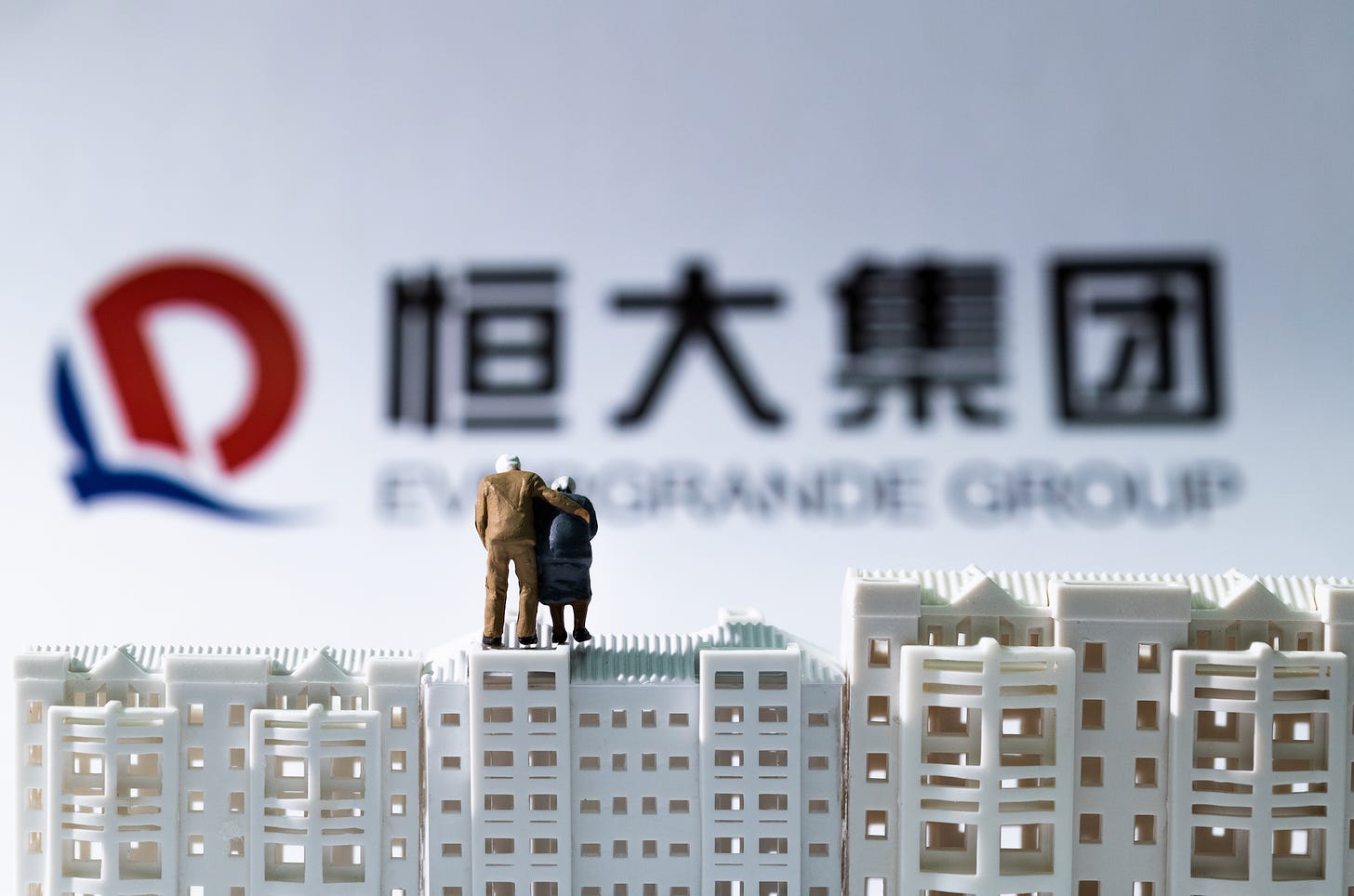A crisis is unfolding in China’s $3 trillion shadow finance sector. Zhongzhi Enterprise Group, one of the largest entities in the trust industry—as the shadow financial system is known—recently missed a number of payments on trust products. As we know, one debtor’s missed payment is some lender’s missed receipt, so this is raising alarms about firms that have lent billions to cash-strapped developers.
Concerns about real estate in China are hardly a new topic of conversation. A property crisis has been brewing for years. One name that has been top-of-mind for anyone who pays attention to these things is China Evergrande Group, the world’s most indebted property developer. Evergrande, which carries more than $300 billion in debt obligations, first defaulted on payments to global investors back in December 2021. So it didn’t come as a total surprise when the giant real estate conglomerate filed for Chapter 15 bankruptcy protection in New York yesterday. The filing will allow it to seek protection from creditors in the US and debt restructuring in other jurisdictions.
A second major developer, Country Garden, also appears to be headed for major problems. Country Garden managed to avoid default after Beijing cracked down on the leveraged real estate sector with its “three red lines” policy in 2020, but it is at risk of default in the coming weeks.
President Biden recently referred to the Chinese economy as a “ticking time bomb,” and Treasury Secretary Janet Yellen called it a “risk factor” for the U.S. economy. The president was referring to weak growth (with deflationary pressures) as well as China’s demographic challenges. That’s different (though not unrelated) to the financial turmoil that has sparked concerns about global contagion.
The People’s Bank of China (PBoC) has responded with its steepest rate cut in three years, and leaders are looking for other ways to shore up aggregate demand and maintain President Xi Jinping’s common prosperity pledge.
I don’t know how things will unfold. I checked in with a friend (an economist) who is in China, and I was told “things are not looking good on the ground.” It is one thing for wealthy speculators, who took excessive risk, to lose money. But is something else to have migrant workers unable to eat and homebuyers out on the streets due to the widespread abandonment of planned construction projects on land with defaulted loans.
As always, thank you for reading The Lens. Have a great weekend!





As Prof Mike Hudson is fond of saying , “debts that can’t be repaid, won’t be repaid”. Can PBOC keystroke enough yuan into existence a la GWB/ Obama to keep the dragons at bay? Seems like PRC is more sovereign than we are these days....
A nice concise economic explanation of China’s possible financial problems. Well stated.
Geoff Davies